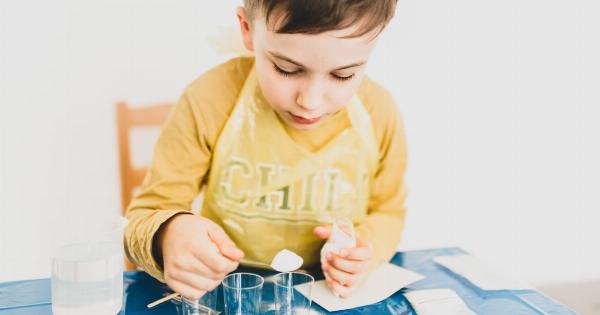Dry hair is a common hair issue that many people face. It has become a concern for many people as it makes the hair appear dull, frizzy, and unhealthy. However, before seeking solutions to this hair issue, it is necessary to determine the root cause.
Dry hair can occur due to various reasons, such as genetics, poor nutrition, environmental factors, and excessive hair treatments.
Genetics
The texture and quality of hair are determined by genetics. Some people may have naturally dry hair, which is often referred to as ‘textured’ hair.
People with textured hair tend to have hair that is naturally dry due to the hair’s shape and structure. Hair that is curly or coiled takes longer for natural oils to travel from the scalp to the ends of the hair strands, resulting in dryness.
In such cases, a gentle hair care routine and frequent moisturization can help improve the hair’s appearance.
Poor Nutrition
What you eat can have a direct impact on the health of your hair. A diet lacking in essential vitamins and minerals can lead to dry, brittle hair. Nutrients such as vitamin A, C, D, E, biotin, and iron are essential for healthy hair growth.
A deficiency in any of these nutrients can cause dryness and breakage. To prevent this, it’s necessary to include a range of nutrient-dense foods in your diet such as fruits, vegetables, nuts, seeds, fish, and lean meats. Supplements may also be recommended by your healthcare provider.
Environmental Factors
Environmental factors such as hot and cold weather, humidity, and wind can also contribute to dry hair. Exposure to the sun’s UV rays, pollution, and harsh chemicals can also damage the hair.
In such cases, it is important to take preventative measures to protect the hair from these elements. This can be done by wearing a hat or using a conditioning treatment with SPF when outside, limiting exposure to pollutants, and using gentle hair care products that do not contain harsh chemicals.
Excessive Hair Treatments
Hair treatments such as coloring, perming, and relaxing can weaken the hair, making it prone to dryness and breakage. These treatments can strip the hair of its natural oils and lead to damage.
Overuse of heat styling tools such as blow dryers, straighteners, and curling irons can also cause damage and dryness. In such cases, it’s necessary to limit the use of such treatments and opt for more natural hair care solutions.
This can include using hair care products that contain natural ingredients, avoiding overuse of heat styling tools and applying a leave-in conditioner before using any heat styling tools.
Other Causes of Dry Hair
There are also several other factors that can contribute to dry hair. These include stress, hormonal changes, medication, illness, and aging. Stress can cause the hair to become dull and brittle by altering the hormones in the body.
Hormonal changes, such as those experienced during menopause, can also lead to dry hair. Some medications, such as those used to treat high blood pressure and depression, can also cause dryness. Illnesses such as thyroid disorders can also lead to dry hair. As we age, our hair naturally becomes thinner, weaker, and drier.
In such cases, it’s necessary to consult a healthcare professional for medical advice.
Conclusion
Dry hair is a common hair issue that can significantly impact our appearance and confidence levels. However, determining the underlying cause of dry hair is necessary before seeking solutions.
Genetics, poor nutrition, environmental factors, and excessive hair treatments can all contribute to dryness and brittleness. In cases where the cause is more complex such as hormonal changes and illness, it’s best to seek medical advice. By understanding the root cause of dry hair, we can take the necessary steps towards healthier and more vibrant-looking hair.




























